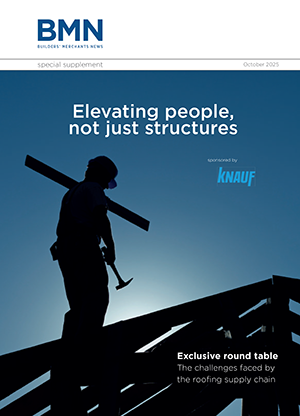The construction industry remained in recession in Q3 2012 and tender prices fell by 1.3 percent compared to the previous quarter, according to the UK construction Tender Price Index compiled by The Building Cost Information Service (BCIS) of the Royal Institution of Chartered Surveyors (RICS).
However, the figures did show an increase in tender prices of 0.9 percent compared with the same quarter in 2011.
With new construction work also continuing to fall, tender prices were expected to remain on a downward trend for the remainder of 2012 and first part of 2013. However, with input costs having risen by 7 percent and tender prices by 6 percent since 2010, contractors' margins are thought to be severely limited, with little downward manoeuvrability. BCIS is therefore forecasting tender prices to rise from mid-2013 as contractors become unable to continue absorbing high input costs.
With the lack of financing continuing to be a strain, total work output fell by 11 percent compared with a year earlier and 3 percent compared with the previous quarter. There were double digit falls for all new work sectors compared with a year earlier, apart from the private industrial sector, which rose by 1 percent. The public sector continued to be impacted by cuts and a continuing decline, with public housing and public non-housing sectors having the biggest falls at 18 and 22 percent respectively. This was followed by the private commercial sector, which fell by 16 percent.
New orders were also down significantly on the previous year, although up compared to Q2 2012 by 5 percent. There were some positive signs for the infrastructure sector with a much-needed increase of 31 percent on new orders compared to the previous quarter and 44 percent increase compared to the same period in 2011. The private commercial sector suffered from particularly low new orders, down 7 percent compared to the previous year and 35 percent compared to Q2 2012.
Building costs remained stable in the period compared to Q2 2012, but rose by 0.6 percent compared to a year earlier. There was some relief for contractors with materials prices falling by 0.8 percent in Q3 2012 compared to the previous quarter and by 0.4 percent compared to Q3 2011. For the construction sector as a whole, average weekly earnings (AWE) remained unchanged in Q3 2012.
Peter Rumble, BCIS information services manager, said: "The construction sector is continuing to struggle through difficult times with yet another dip in tender prices further tightening contractor margins. However, as contractors can no longer absorb costs, we anticipate this trend to begin reversing in mid-2013 and continue rising until the end of BCIS' forecast period in 2017.
"With government cuts continuing, the public non-housing sector will remain one of the hardest hit sectors. Extra support for the private housing sector including 'FirstBuy' and 'Get Britain Building' schemes as well as the relaxation of Section 106 agreements is welcome and should help to stimulate growth in this sector. However, one of the key constraints remains the availability of finance to housebuilders and homeowners, which will hopefully be addressed through the Funding for Lending Scheme."






